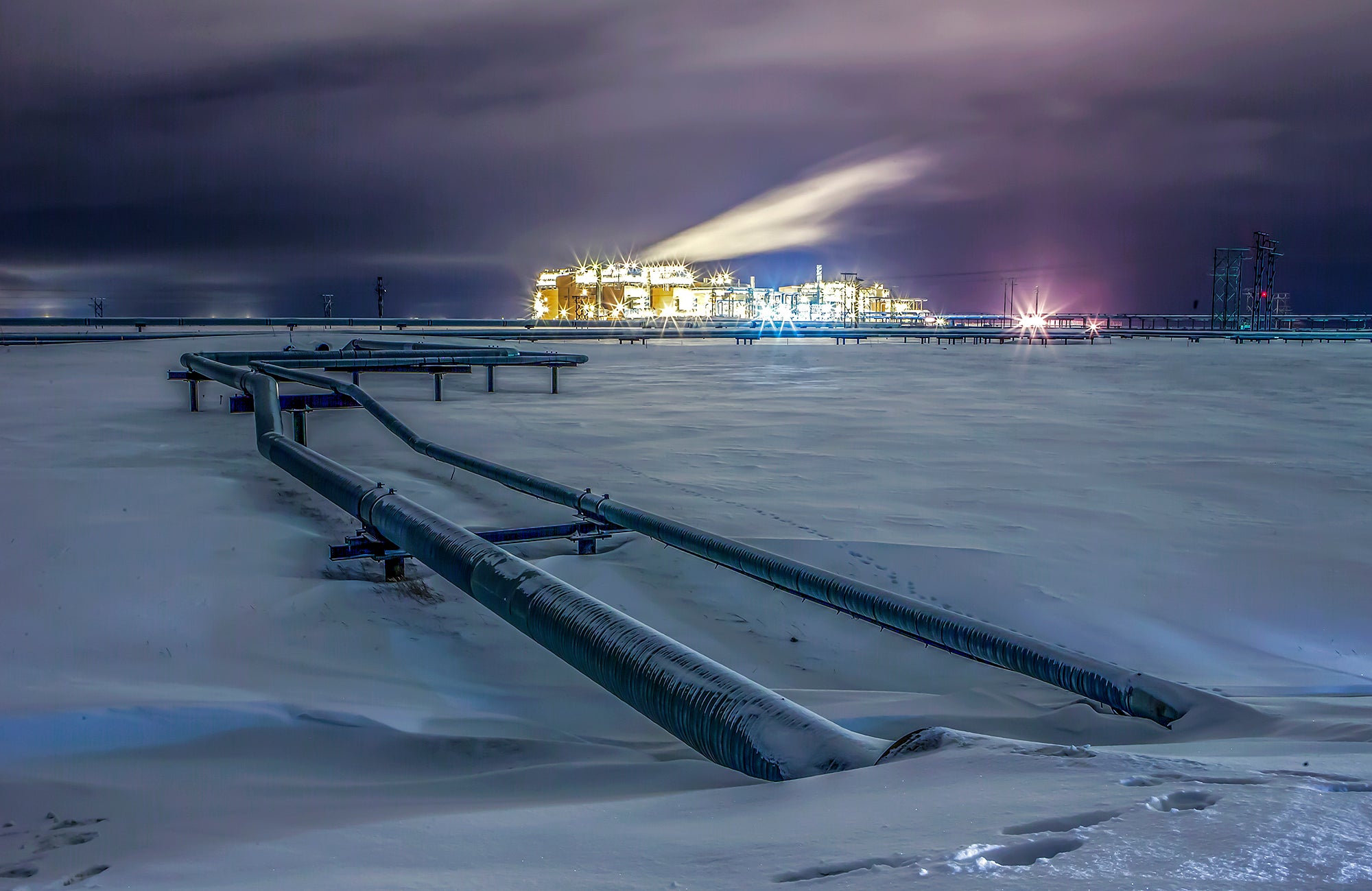5 Special Places That Trump’s Megabill Would Sell Out — to Pay for Billionaire Tax Breaks
The bill includes proposals to sell out our public lands and waters to corporate interests
When it comes to the great outdoors, the budget reconciliation bill — which passed the House in May — threatens to transform America the Beautiful into America for profit. Some have labeled it the worst environmental bill in history. With this bill text, polluters and their congressional allies are telling Americans that we must give up the world-class natural areas that we all benefit from — all to boost profits for companies seeking to mine, log, or drill on national public lands. Funds that will supposedly be raised by plundering these public lands will go toward tax cuts, primarily benefiting the ultra-wealthy.
Congress is trying to rush through this bill by early July. Don’t wait to make your voice heard.
Below are five places that may never be the same if this legislation passes.
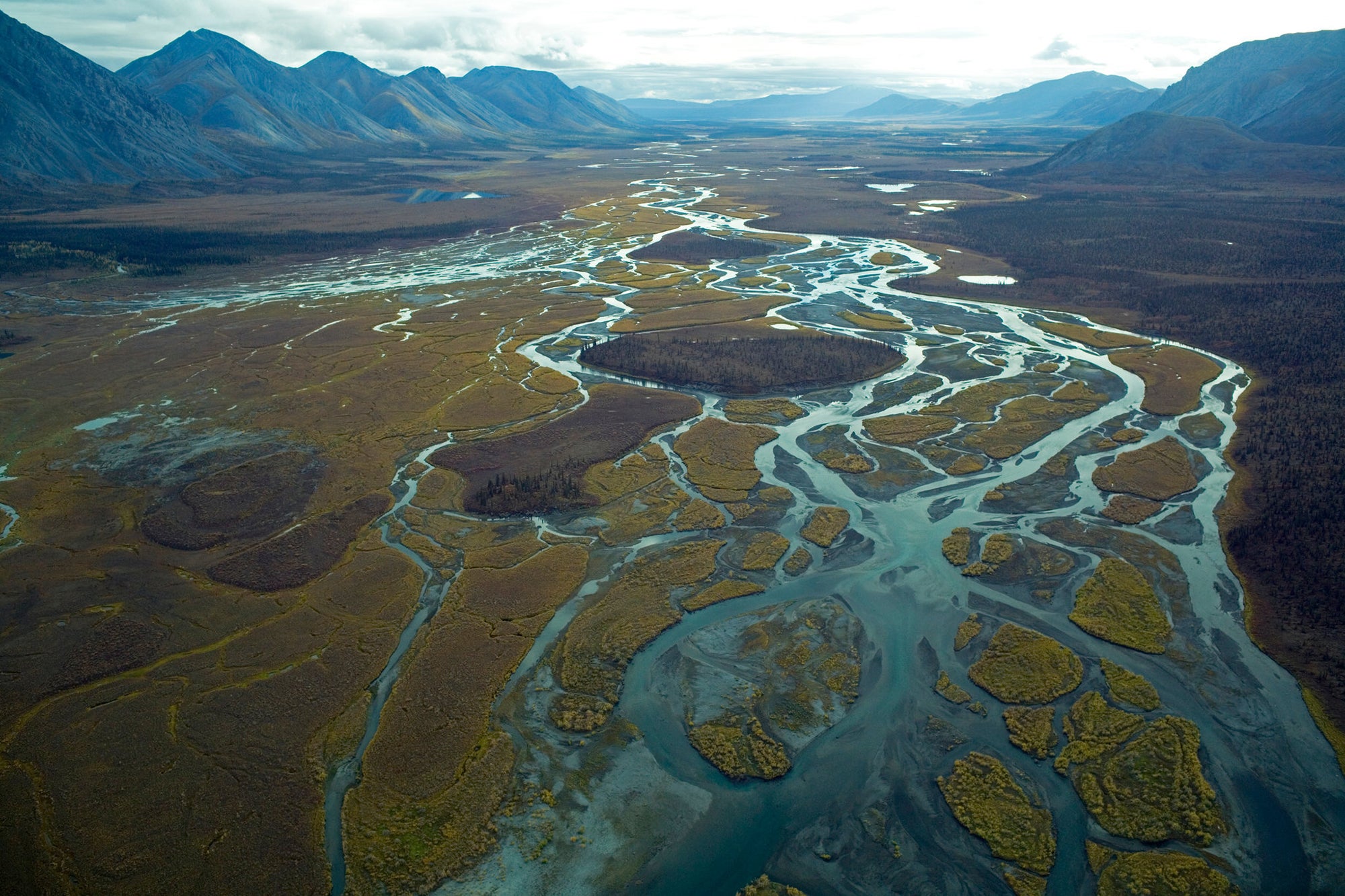
The Arctic National Wildlife Refuge. (U.S. Fish & Wildlife Service)
1. Alaska’s Arctic
The Arctic is one of our nation’s most majestic landscapes and the traditional homeland of Indigenous peoples who have stewarded and relied upon the lands from time immemorial. The Arctic is home to an abundance of wildlife — including caribou, polar bears, and birds that flock to these northern lands from all over the globe to raise their young.
President Trump is pushing for increased oil and gas production across the Arctic despite the climate and ecological consequences. The bill, if passed, would mandate the auctioning of 1.6 million acres in the Arctic National Wildlife Refuge to oil companies.
Beyond the major ecological concerns of drilling in the Arctic, mandated lease sales in the Refuge have already proven to be a financial failure — not once, but twice. A mandated lease sale under President Trump in 2021 generated less than 1% of the $1.8 billion in projected revenue, failing to offset Trump’s first tax cuts. This previous outcome makes it obvious that offering these lands for lease is not a revenue-raiser and doesn’t belong in a budget bill.
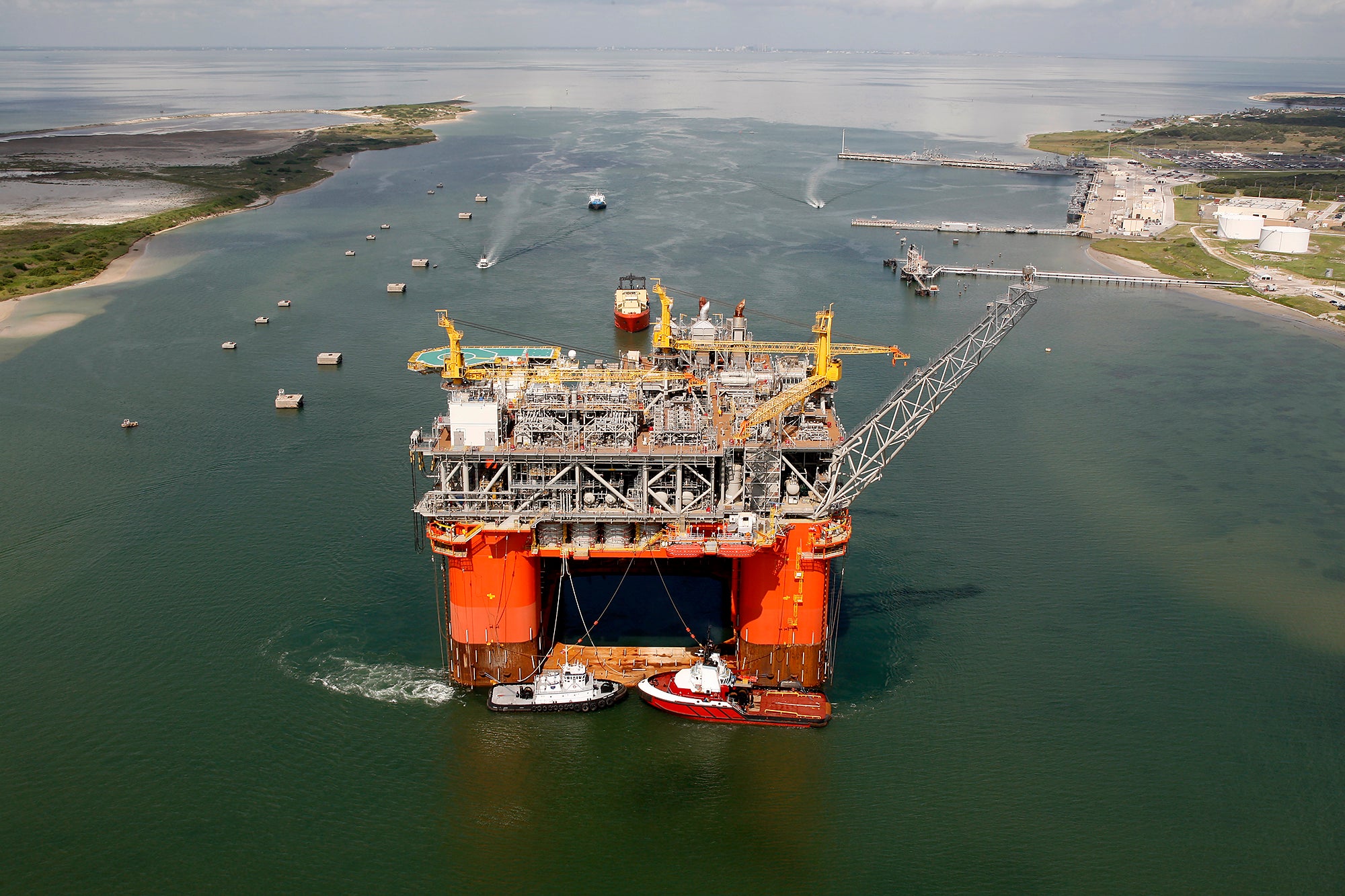
An offshore oil platform being towed into the Gulf of Mexico from a shipyard near Corpus Christi, Texas. (Marc Morrison / Cavan Images / Getty Images)
2. The Gulf of Mexico
In a shameless giveaway to Big Oil, the bill seeks to mandate at least 30 lease sales in the Gulf of Mexico, each totaling at least 80 million acres. Expanding offshore drilling threatens coastal tourism, the fishing industry, and recreation — which together support millions of jobs — all while locking us into more fossil fuel pollution. This bill is all the more egregious given that Big Oil is already sitting on an excess of unused leases on millions of acres of our public waters in the Gulf.
More offshore drilling means more oil spills, more pollution, and more climate disasters for the communities already on the frontlines of climate change. This is especially true for communities in Louisiana, Texas, and Mississippi, which have already borne the brunt of decades of pollution from fossil fuel development, along with sea-level rise and increasingly powerful hurricanes, both the result of climate change. This year marks the 15th anniversary of the Deepwater Horizon oil spill, the devastation of which still lingers across Gulf Coast ecosystems, fisheries, and local economies.
Expanded offshore drilling threatens the coastal economies that depend on a healthy ocean, from seafood to tourism, which generate $476 billion in GDP and support 2.4 million jobs. These industries need healthy marine ecosystems, thriving fisheries, and safe, livable coasts.
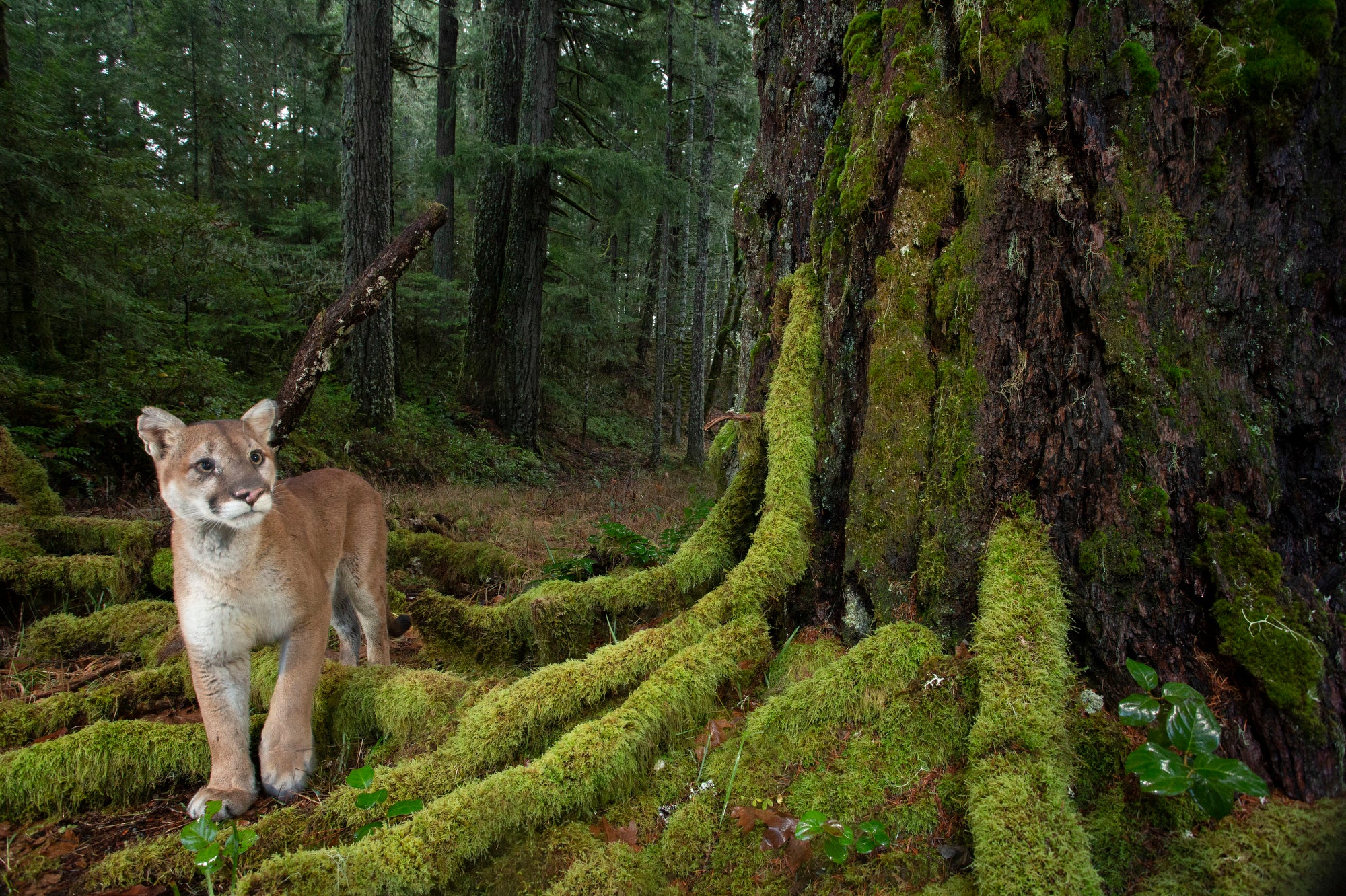
A mountain lion prowls along old-growth tree roots in the Siuslaw National Forest in western Oregon. (David Herasimtschuk)
3. Pacific Northwest Forests
Our federal forests belong to all of us and should be managed in ways that benefit us all. Nevertheless, this bill calls for ramping up logging across federal forests, by mandating that the Forest Service and the Bureau of Land Management enter into at least one long-term timber contract in each region. This might force harmful logging to occur that is not even economical, let alone ecologically appropriate. The bill also directs a 25% increase in timber harvest over the total volume harvested in recent years, regardless of the impacts this could cause, be it worsening wildfires due to clearcutting or reducing our federal forests climate and clean water benefits. Finally, it goes around the Roadless Rule by allowing the increased timber harvest to take place in many Roadless Areas across the country.
Increasing timber production means cutting down more big, old trees, since the biggest trees produce the most lumber. Once an old-growth tree is cut, it will take longer than a human lifetime to replace it. This means the Pacific Northwest, where more stands of mature and old-growth trees remain on federal lands, could be particularly impacted by the policy proposal.
Our mature and old-growth trees and forests are worth more standing. They provide clean air and water, as well as critical habitat for spotted owls, wild salmon, and other iconic wildlife, and importantly provide a buffer against wildfire as they are the most fire resistant. National forest lands offer places to recreate and access to nature as a critical public health benefit, and they hold enormous cultural and spiritual value. As climate change makes summer temperatures hotter and hotter every year, the forests cool our air and absorb and store carbon in their leaves, branches, trunks and soil.
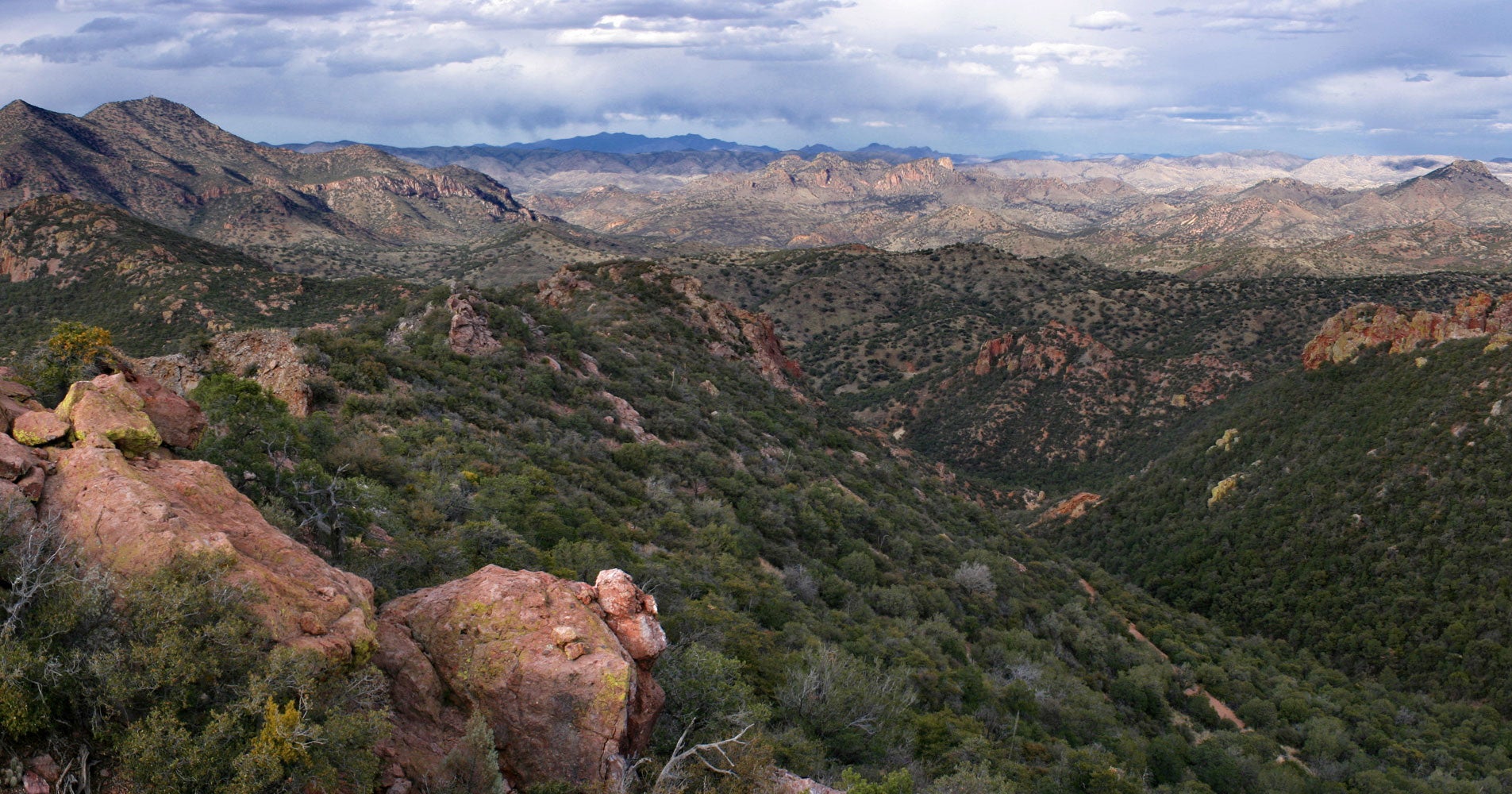
The Patagonia Mountains in Arizona provide a key corridor for jaguars and ocelots moving north from Mexico to their range in the United States. (Patrick Alexander)
4. U.S.-Mexico Borderlands
The U.S.-Mexico borderlands contain some of the most unique and biodiverse ecosystems in North America. The border bisects vast deserts, one-of-a-kind “sky island” mountain ranges, and rugged canyons from the Pacific Ocean to the Gulf of Mexico. Some 1,506 native species can be found in the borderlands, including dozens of animals listed under the Endangered Species Act such as the critically imperiled Mexican wolf, jaguar, ocelot, bighorn sheep, and Sonoran pronghorn. And 30 million people live in thriving communities on either side of the border, many of whom regularly cross the border for commerce, tourism, or to visit family and friends.
Unfortunately, more than 700 miles of walls and barriers along the U.S.-Mexico border currently divide many of these incredible ecosystems and vibrant communities. Built at the cost of nearly $19 billion dollars and advanced under the broadest waivers of laws in U.S. history, border wall construction has caused the destruction of sites sacred to federally recognized Tribes, exacerbated deadly flooding, and cut off landowners from access to their property. Expanding the wall will only make these problems worse.
And yet, the reconciliation bill authorizes an additional $46.5 billion to construct hundreds more miles of wall along the Southern U.S. border. Border wall construction wastes billions of taxpayer dollars, harms communities on the ground, and destroys unique ecosystems. If fully funded and constructed as proposed by this legislation, the border wall would become the single most expensive federal project in U.S. history, with little to no environmental review or protection, and with devastating consequences for border communities, ecosystems, and all of us.
5. The Western U.S. (UPDATE: Victory!)
After enormous public pressure from people like you, the Senate stripped a provision from the bill that would have required the outright sale of at least 2 million acres of public lands across 11 Western states over the next five years. The lands that would have been be eligible are truly vast, stretching over 250 million acres.
While we celebrate the removal of this one provision, this bill remains terrible for our public lands.
Take action to tell the Senate to vote NO on this budget bill.
Originally published on May 5, 2025. This article was updated several times after the Senate added and removed provisions to sell off public land.
Established in 1989, Earthjustice's Policy & Legislation team works with champions in Congress to craft legislation that supports and extends our legal gains.
Geoffrey Nolan
Public Affairs and Communications Officer, Earthjustice
gnolan@earthjustice.org
